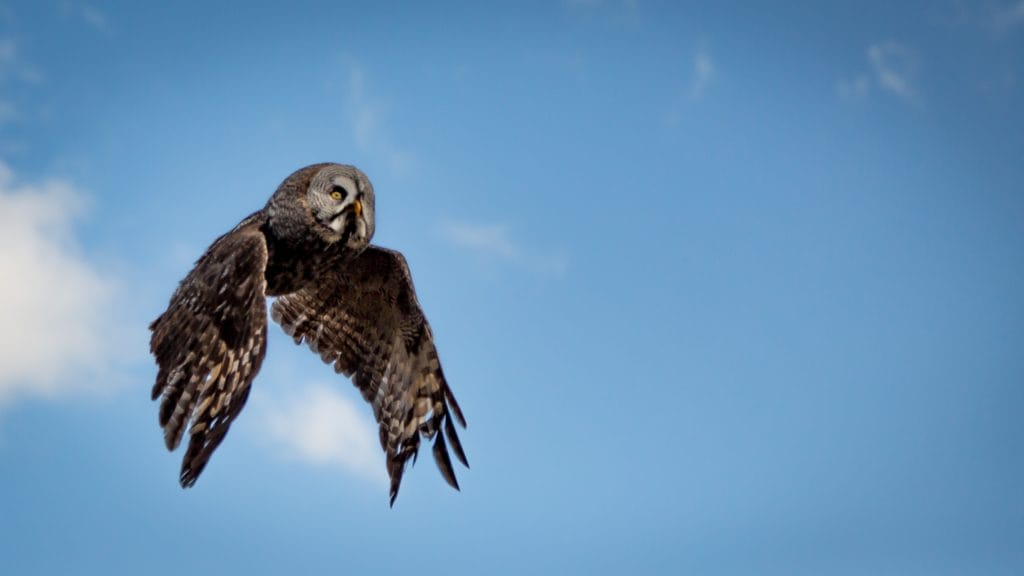
Photo by Alex Guillaume
A SIGHTING
The gray owl had seen us and had fled
but not far. We followed noiselessly,
driving him from pine to pine:
I will not let thee go except thou bless me.
He flew as though it gave him no pleasure,
forcing himself from the bough,
falling until his wings caught him:
they had to stroke hard, like heavy oars.
He must have just eaten
something that had, itself, just eaten.
Finally he crossed the swamp and vanished
as into a new day, hours before us,
and we stood near the chest-high reeds,
our feet sinking, and felt
we’d been dropped suddenly from midair
back into our lives.
Connie Wanek is one of my favorite living American poets, and her three books (including her most recent, On Speaking Terms) are filled with wonders like “A Sighting,” a poem that has arisen from and gains its strength from paying close attention to the world, which is, as I tell my writing students at the University of Nebraska, as important to good writing as is good writing itself.
Have you ever seen the flight of an owl described so accurately? Most poets, creating a scene like this one, could describe an owl in flight, how it appears on the wing—its shape, its silhouette, its soaring—but it takes a rare gift to give us an owl (and a poem is a gift to its reader) that not only can fly but can fly against its own heaviness, can lift the great load of itself and carry it from tree to tree. I love the way the owl falls into the air with a kind of heavy tedium and then catches itself with its wings, and Wanek’s precisely chosen words—“stroke hard, like heavy oars”—which are themselves solid and heavy-sounding.
The diction of the fourth line comes as quite a surprise, and is meant, I presume, to suggest that there is a spiritual component to what might otherwise be seen as mere anecdotal description. To touch our hearts, a poem needs to rise above mere anecdote and reach into something beyond, something greater, or, as the ancient Chinese poets said, “a poem must lift its eyes.”
And, of course, as the poet describes the owl she is herself transported, lifted forward into something remarkable. And when the owl vanishes, she is “dropped suddenly from midair.” The epiphany has passed.
Besides the poet, there is at least one other person present, perhaps more, in pursuit of the owl, but those mentions of “we” do more than tell us who is present. They include all of us in the experience. We readers are part of that “we,” and the poet’s experience becomes, through the medium of the poem, our experience as well.
Breathtaking, heart-stopping, altogether beautiful.
